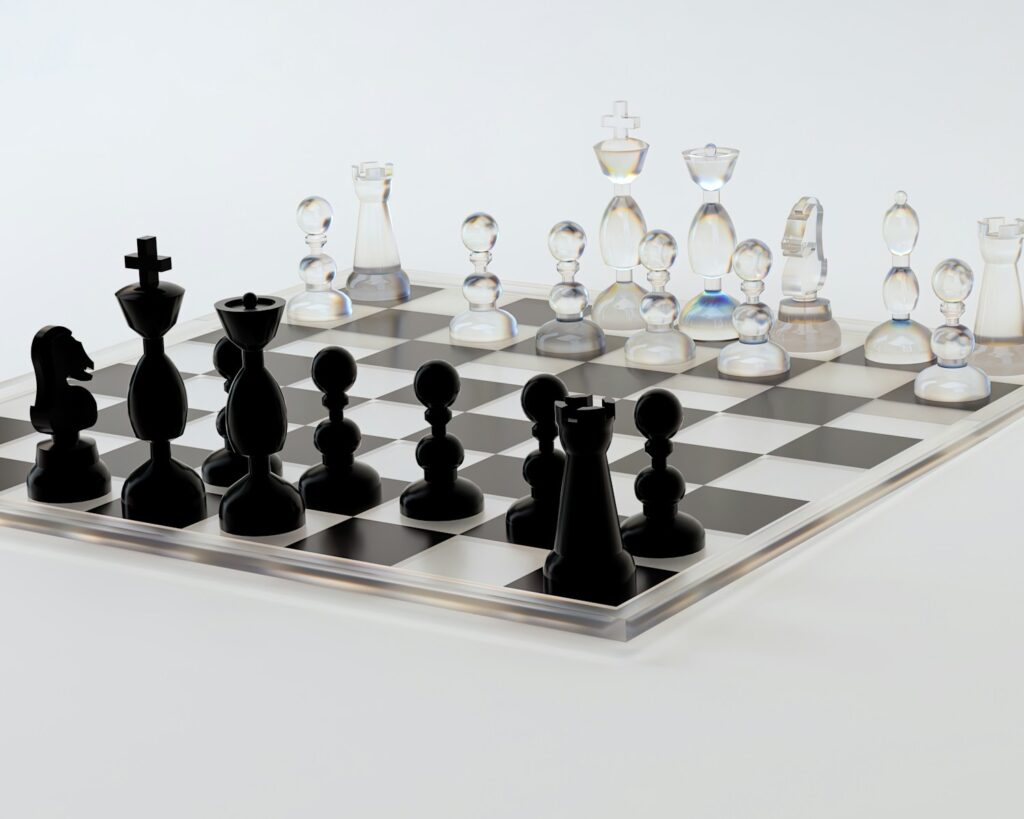Not all hobbies appeal to everyone. While some people seek leisure or distraction, highly intelligent individuals often crave mental stimulation and depth. Their hobbies tend to challenge the mind, requiring focus, creativity, and an understanding of complex systems. Whether it’s solving intricate puzzles or mastering an art that fuses logic with imagination, these pastimes demand curiosity and patience, traits that define sharp thinkers. Here are six fascinating hobbies that tend to attract the world’s most intellectually inclined individuals.
1. Chess: The Ultimate Battle of Minds

Built around the 6th century in India as “Chaturanga,” chess evolved through Persia and Europe to become a universal test of intellect. The game’s enduring appeal lies in its balance of logic, foresight, and creativity. Each match is a psychological duel, where players must anticipate patterns and make strategic sacrifices. Intelligent people find joy in decoding possibilities, studying historic games, and experimenting with unconventional openings. Chess offers endless complexity; there’s no perfect strategy, only infinite room for growth and insight into human decision-making.
2. Coding and Algorithmic Thinking

Originating in the mid-20th century with the development of early computers, coding has become both a career and a mentally stimulating hobby. Intelligent minds are drawn to its problem-solving nature, turning abstract logic into functional programs feels like crafting a language of thought. Writing algorithms, exploring artificial intelligence, or creating interactive tools pushes one’s reasoning and creativity simultaneously. The satisfaction comes from precision and innovation, where even a single line of code can transform how a system behaves, rewarding those who think critically and adapt quickly.
3. Playing a Musical Instrument

Music, though ancient, traced as far back as 35,000 years ago, remains one of the most intellectually rich hobbies. Playing an instrument engages both hemispheres of the brain, improving memory, coordination, and emotional intelligence. For highly intelligent individuals, music offers a balance of discipline and freedom. The challenge of mastering rhythm, scales, and improvisation mirrors cognitive problem-solving. Whether composing or performing, musicians experience continuous learning; each note is an experiment in expression, mathematics, and emotion working in perfect harmony.
4. Strategic Gaming and Simulations

From the creation of early board games like “Go” in 2300 BCE to modern complex simulations, strategy gaming appeals deeply to analytical thinkers. Intelligent individuals thrive on the layered systems of strategy games where success depends on planning, resource management, and understanding human behavior. Games like Civilization or real-time tactical simulations mimic real-world complexity, requiring adaptive thinking and pattern recognition. For these minds, gaming isn’t mere entertainment; it’s a laboratory for decision-making and abstract reasoning wrapped in digital storytelling.
5. Creative Writing and Storycrafting

Storytelling dates back to cave paintings and oral traditions over 30,000 years ago. For highly intelligent people, writing is more than self-expression; it’s a structured exploration of human thought, behavior, and imagination. Crafting a story demands empathy, logic, and creative synthesis. Writers manipulate language, symbolism, and pacing to provoke reflection or emotion. The process challenges intellect on multiple levels: constructing worlds, resolving conflicts, and exploring philosophical ideas through characters. To the sharp-minded, writing is both art and analysis, an ever-evolving puzzle of meaning.
6. Scientific Experimentation and Research

Since the rise of modern science in the 17th century, experimenting has attracted the intellectually curious. Intelligent individuals are drawn to discovering how things work, testing hypotheses, designing experiments, and analyzing data. Whether it’s amateur physics, chemistry, or psychology, experimentation satisfies both the analytical and creative sides of the mind. The appeal lies in uncovering truths through structured curiosity. Each discovery, no matter how small, connects to a larger network of knowledge, giving thinkers a sense of contribution to human understanding.
Comments